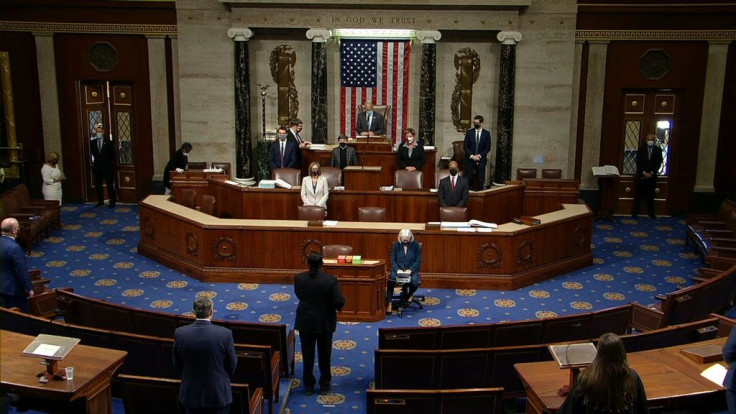Is It Too Late To Impeach Trump? Senate, House Faced With Short Window To Act
With one week before President-elect Joe Biden is inaugurated, many have questioned the point of a second 11th-hour impeachment. While it is true that it would be virtually impossible — practically and politically — to remove President Trump from office before Inauguration Day, a trial in the Senate could potentially stretch well into the first year of the Biden presidency.
An impeachment by the House of Representatives does not necessarily mean quick action after that. Democratic leaders have the option of waiting to send their indictment to the Senate until after lawmakers have worked on Biden’s priorities such as cabinet nominees and vaccine distribution.
With Sen. Mitch McConnell now reportedly on board with impeachment, it has been reported that he and Biden have addressed the possibility of working to create two concurrent work streams, effectively splitting the Senate’s time between Trump’s trial and Biden’s agenda. The president-elect has publically taken a hands-off approach, saying it is Congress’ constitutional duty to make impeachment decisions. A trial could begin as early as Jan. 19, according to a memo McConnell has sent to Senate Republicans. Technically, Trump would still be in office.
Whenever the Senate inevitably takes on the issue, it remains unclear whether two-thirds of its members would vote to convict or potentially prevent Trump from seeking office again. Although an increasing number of congressional Republicans have either backed House impeachment or condemned the president’s behavior, the new Senate will be almost evenly divided.
Although many on the Republican side and even some Democrats have questioned the point of symbolic impeachment as an officeholder is preparing to depart, today’s move is not without precedent. In 1876, War Secretary William Belknap was impeached the day he resigned. He was acquitted by the Senate.
Still, not everyone believes history supports the unusual timeline. Michael Luttig, a former judge of the U.S. Court of Appeals, argued in a Washington Post op-ed that a post-presidency impeachment trial would be unconstitutional.
“Once Trump’s term ends on Jan. 20, Congress loses its constitutional authority to continue impeachment proceedings against him—even if the House has already approved articles of impeachment,” Luttig wrote, arguing that a former president is not subject to Senate rulings under the Constitution’s impeachment clauses.

© Copyright IBTimes 2025. All rights reserved.



















